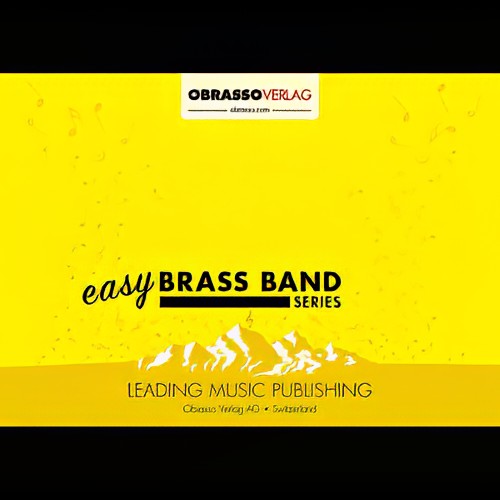Results
-
 £59.70
£59.70Three TV Classics (Brass Band - Score and parts) - Mabon, Cameron
Slightly reduced Brass Band instrumentation (no rep cornet, no 2nd horn, no 2nd trombone part)Includes:The A-TeamJoe 90Hawaii Five-0
Estimated dispatch 7-14 working days
-
 £56.00
£56.00Times Passed (Brass Band - Score and Parts) - Fernie, Alan
Slightly reduced Brass Band instrumentation (no rep cornet, no 2nd horn, no 2nd trombone part)
Estimated dispatch 7-14 working days
-
 £59.70
£59.70Tragedy and More (Brass Band - Score and Parts) - Mabon, Cameron
Slightly reduced Brass Band instrumentation (no rep cornet, no 2nd horn, no 2nd trombone part)Includes:TragedyThe Great Escape
Estimated dispatch 7-14 working days
-
 £56.00
£56.00Trouble in the Air (Brass Band - Score and Parts) - Fernie, Alan
Slightly reduced Brass Band instrumentation (no rep cornet, no 2nd horn, no 2nd trombone part)
Estimated dispatch 7-14 working days
-
 £59.70
£59.70Two Cartoon Themes (Brass Band - Score and Parts) - Mabon, Cameron
Slightly reduced Brass Band instrumentation (no rep cornet, no 2nd horn, no 2nd trombone part)Includes:The Muppet ShowScooby Doo, Where Are You?
Estimated dispatch 7-14 working days
-
 £59.70
£59.70Two Gershwin Classics (Brass Band - Score and Parts) - Gershwin, George - Hume, Rob J.
Slightly reduced Brass Band instrumentation (no rep cornet, no 2nd horn, no 2nd trombone part)Includes:But Not For Me (Flugelhorn Solo)Summertime
Estimated dispatch 7-14 working days
-
 £59.70
£59.70Two Movie Blockbusters (Brass Band - Score and Parts) - Mabon, Cameron
Slightly reduced Brass Band instrumentation (no rep cornet, no 2nd horn, no 2nd trombone part)Includes:Raider's MarchPirates of the Caribbean
Estimated dispatch 7-14 working days
-
 £59.70
£59.70Two Movie Themes (Brass Band - Score and Parts) - Mabon, Cameron
Slightly reduced Brass Band instrumentation (no rep cornet, no 2nd horn, no 2nd trombone part)Includes:Eye of the TigerJurassic Park
Estimated dispatch 7-14 working days
-
 £59.70
£59.70Two Rock Classics (Brass Band - Score and Parts) - Mabon, Cameron
Slightly reduced Brass Band instrumentation (no rep cornet, no 2nd horn, no 2nd trombone part)Includes:Pinball WizardDon't Look Back in Anger
Estimated dispatch 7-14 working days
-
 £56.00
£56.00Viva La Vida (Brass Band - Score and Parts) - Hume, Rob J.
Slightly reduced Brass Band instrumentation (no rep cornet, no 2nd horn, no 2nd trombone part)
Estimated dispatch 7-14 working days
